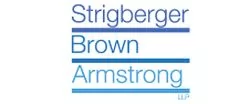The Divisional Court has confirmed that the limitation period set out in the Insurance Act and the SABS falls within the category of “hard” limitations periods, which are triggered by a fixed and known event, as opposed to the day a claim was discovered.
The Divisional Court noted that although it may be considered harsh, there are important policy considerations on both sides:
In the case of the Insurance Act, and claims under the SABS, an insurer has no control over when an insured applies for a designation of catastrophic impairment. An insurer would not continually assess a claimant if ongoing expenses are not being submitted. Presumably, the legislature thought it important to provide for a reasonable period, after which an insurer’s obligation would be discharged, whether or not meritorious claims may be discovered later.
The Applicant, Sotira Tomec, sought judicial review of the decision of the Licence Appeal Tribunal in S.T. v. Economical Mutual Insurance Company, 2018 CanLII 61170 (ON LAT).
Ms. Tomec was involved in a pedestrian-motor vehicle accident on September 12, 2008. Economical paid attendant care benefits and housekeeping benefits up to the 104-week mark, at which point Economical sent her a letter and Explanation of Benefits, both dated August 26, 2010, containing a refusal to pay further attendant care benefits and housekeeping benefits beyond September 12, 2010. The Explanation of Benefits contained language regarding the dispute resolution process and a warning of the two-year limitation period to dispute the refusal to pay further benefits. Ms. Tomec did not dispute the refusal to pay further attendant care benefits and housekeeping benefits until more than six years later, on September 20, 2016. In the interim, Ms. Tomec submitted an Application for Determination of Catastrophic Impairment, dated May 13, 2015 and via letter dated November 4, 2015, Economical deemed her catastrophically impaired.
At the Licence Appeal Tribunal, Ms. Tomec argued that the limitation period should not start to run before she was deemed catastrophically impaired, which was when she discovered she had a claim. In response, Economical argued that the limitation period is triggered by the insurer’s refusal to pay a benefit and that, as set out by the Divisional Court in Kirkham v. State Farm, [1998] O.J. No. 6459 (leave to appeal refused), the principle of discoverability does not apply to SABS disputes. The “cause of action approach” was specifically rejected in Kirkham when interpreting the phrase “within two years after the insurer’s refusal to pay the benefit claimed”.
The Tribunal’s Vice-Chair determined that the Applicant was statute barred from proceeding with her claim for attendant care benefits and housekeeping benefits. The Vice Chair found that Economical issued a clear and unequivocal denial of attendant care benefits and housekeeping benefits which met the requirements of Smith v. Cooperators, [2002] 2 S.C.R. 129 and, as well, that the principle of discoverability does not apply to accident benefits.
The Divisional Court considered the appropriate standard of review of the Tribunal’s decision, noting that the question of whether the discoverability principle applies is a general question of law that goes beyond the expertise of the Tribunal and is a question that must be answered uniformly for all adjudicators deciding cases under the Insurance Act. However, ultimately, the Court found that it was unnecessary to come to a definitive conclusion on the applicable standard of review since there was no error, even on a correctness standard.
Ultimately, after consideration of its own decision in Kirkham v. State Farm and the Ontario Court of Appeal’s decisions in Levesque v. Crampton Estate, 2017 ONCA 455, Haldenby v. Dominion, 55 O.R. (3d) 470, Turner v. State Farm, (2005) 195 OAC 61 and Sietzema v. Economical, 2014 ONCA 111, the Divisional Court held:
as found by the Tribunal, the insurer had clearly and unequivocally refused to pay those expenses as of September 12, 2010. Pursuant to the clear words of the limitation period, which ties it to a period of two years after the insurer’s refusal to pay the benefit claimed, the claim is time barred.”
See Tomec v. Economical Mutual Insurance Company, 2018 ONSC 5664 (CanLII).
The content of this article is intended to provide a general guide to the subject matter. Specialist advice should be sought about your specific circumstances.

